In sports, it’s often said that defence wins championships.

The Conservatives certainly hope that holds true on election night.
When the Conservative Party won 166 seats in 2011, it did so with 39.6 per cent of the vote. While it could go back to those heights, most polls conducted in the last month have had them between 28 and 32 per cent (except an Ekos poll released Thursday that put the Conservatives at 35.4 per cent).
And so, Stephen Harper’s road map involves less winning in new places, and more holding on to regions where his party won last time.
In this respect, they have a few advantages. Many of Canada’s 30 new electoral districts are in places where the Conservatives have traditionally done well, including Ontraio’s “905” belt, and the suburbs of Calgary, Edmonton and Vancouver.
And with both the Liberals and the NDP doing well in the polls, there’s the potential of vote-splitting on the left.
READ MORE: 10 ridings where strategic voting might decide the election
Even so, the Conservatives are anything but locks to finish election night with the most seats. Analysis by the Laurier Institute for the Study of Public Opinion and Policy (LISPOP) projects the Conservatives to win 114 seats, compared to 117 for the NDP and 106 for the Liberals.
See the LISPOP map below:
The Conservatives could lose 15, 20, or even 25 seats they won by small margins in 2011—in the GTA south of York, Prince Edward Island, Vancouver Island, and a few other places—and still finish election night with the most MPs.
But if they lose these 10 ridings, they’d be in serious trouble.
1. Central Nova
2011 result (based on current boundaries): 1st place, 55.3 per cent
Current LISPOP projection: Leaning Conservative
The Conservatives won 14 seats in Atlantic Canada in 2011, yet it’s unlikely they will get that many in this election. They received 37.9 per cent of votes then, but haven’t eclipsed 26 per cent for the region in any poll since Aug. 11.
However, they still hope to do well in rural seats in Nova Scotia and New Brunswick—Central Nova being a prime example. Held by the MacKay family for 39 of the last 44 years, it’s an open riding following Peter MacKay’s decision to leave politics.
Fred Delorey, a longtime staffer for the Conservatives, hopes to retain the seat for the party. In a Mainstreet/Postmedia poll of this riding released this week, Delorey led Liberal candidate Sean Fraser, a lawyer, 36 to 30 per cent.
2. Bellechasse—Les Etchemins—Lévis
2011 result (based on current boundaries): 1st place, 43.9 per cent
Current LISPOP projection: Leaning Conservative
The Conservatives have shown in all three of their victories under Harper that they don’t have to win many seats in Quebec—but they would like to hold on to the five they won last election, all but one of which were clustered to the south of Quebec City.
Bellechasse-Les Etchemins-Lévis has been held by Public Safety Minister Steven Blaney since 2006, and his vote total has been remarkably stable in all three wins, all between 44 and 46.4 per cent.
The NDP’s candidate is Jean-Luc Daigle, former Saint-Romuald mayor and Lévis councillor. Should he win, the Conservatives could be hard pressed to keep any of their seats in Quebec.
3. Kanata-Carleton
2011 result (new seat, but based on results in polling stations within the boundaries): 1st place, 53.7 per cent
Current LISPOP projection: Leaning Conservative

Get breaking National news
The Conservatives won 73 of 106 seats in Ontario last election, their highest number in the province since the 1984 election.
While they expect to lose some in more urban areas of the province, it’s in suburban ridings surrounding Ottawa and Toronto where tight races could ultimately decide the election.
One of them is Kanata-Carleton, a new riding that local media have described as a toss-up seat. Small business owner Walter Pamic will try to hold the area for the Conservatives, but the Liberals have high hopes for Karen McCrimmon, a retired Air Force Lieutenant-Colonel who was the first woman to command a Canadian Forces flying squadron.
4. Peterborough-Kawartha
2011 result (new seat, but based on results in polling stations within the boundaries): 1st place, 49.6 per cent
Current LISPOP projection: Too close to call
As goes Peterborough, so does the government: the riding surrounding the city has voted for the party that formed government in all but one election since 1963 (the only exception was 1980). And in provincial elections, the Peterborough-centred riding has elected the party that won the most seats each time since 1977.
There is no incumbent here, because former Conservative MP Dean Del Mastro, who had held this riding since 2006, was found guilty last year of violating the Elections Act in his 2008 victory, and sentenced to one month in jail.
And a Nanos poll in the riding conducted earlier this month found the Liberals in first place with 41 per cent of decided voters, followed by the Conservatives at 29 per cent.
However, it only had a sample size of 300—one of the many reasons there’s plenty of debate over which way this riding will go on election night.
5. Vaughan-Woodbridge
2011 result (based on current boundaries): 1st place, 56.6 per cent
Current LISPOP projection: Too close to call
There are nine ridings in the Regional Municipality of York, up from six in 2011, and while the Conservatives dominated this area last time (winning five of six seats, generally by large margins), former cabinet minister Julian Fantino is in tough.
The riding has shrunk drastically from its previous boundaries, when it included all of Vaughan, and has become more urban in the process.
Fantino’s main competition this election is expected to be Liberal candidate Francesco Sorbara, a corporate debt analyst.
Simply put, this is one of many seats in the “905 belt” around Toronto the Conservatives are banking on. While they don’t need to win them all, Vaughan-Woodbridge will be a good indicator of the party’s overall success on election night.
6. Sarnia-Lambton
2011 result (based on current boundaries): 1st place, 52.6 per cent
Current LISPOP projection: Conservative
If Vaughan-Woodbridge is emblematic of the type of suburban, “905 belt” riding the Conservatives are banking on winning, Sarnia-Lambton is emblematic of the more rural Ontario ridings the party has to win.
The riding elected a candidate from the party forming government in every election since 1963, the longest such mark in Canada.
But the Conservatives will have to win it with a new candidate, engineering consultant Marilyn Gladu, as three-term MP Pat Davidson is stepping aside.
7. Charleswood-St. James-Assiniboia-Headingley
2011 result (based on current boundaries): 1st place, 57.6 per cent
Current LISPOP projection: Conservative
Last election the Conservatives won six of eight seats in the Winnipeg area, their best result ever.
LISPOP and other forecasters are predicting the Conservatives to do worse this time around—although polling has been relatively sparse in Manitoba this election cycle.
A good indicator of how well the Conservatives are doing will come in this riding, where Steven Fletcher defeated his NDP challenger by 37.4 per cent, or over 17,000 votes.
It was the party’s largest margin of victory in Winnipeg in 2011, the area is suburban, and Fletcher remains popular. If the Conservatives don’t win here, they’re unlikely to take any of the city’s eight seats.
8. Edmonton Riverbend
2011 result (based on current boundaries): 1st place, 59.4 per cent
Current LISPOP projection: Leaning Conservative
Similar to Winnipeg, most forecasters believe the Conservatives are unlikely do as well this election in Edmonton—where they took seven of eight seats in 2011—but the question is by how much.
Redistribution has changed the boundaries of virtually every seat in the area, and made several that were split between Edmonton and the surrounding area into fully suburban ridings.
One of those new suburban districts is Edmonton West, which has the highest average and median income of all of Edmonton’s ridings (according to the 2011 National Household Survey). There is no incumbent running, and the highest profile candidate is Conservative Matt Jeneroux, a former MLA who lost his seat to the NDP in this year’s provincial election.
Outside of Edmonton West, there may not be a likelier seat in the city for the Conservatives to win—which means if they lose, they’ve likely lost several other Edmonton ridings as well.
9. Cariboo-Prince George
2011 result (based on current boundaries): 1st place, 56.3 per cent
Current LISPOP projection: Leaning Conservative
Conservative MP Dick Harris won each of his seven elections in this riding between 1993 and 2011 by between 15 and 30 per cent.
However, there are several reasons to suggest the margin with be smaller in this election. First, Harris is not running for re-election, with the Conservative candidate now Todd Doherty, who recently served as revenue director at the 2015 Canada Winter Games.
Second, the Conservatives are facing a rare challenge from the right: Sheldon Clare, president of the National Firearms Association, is running here as an independent.
Third, polls have generally shown the Conservatives with lower support in British Columbia — between 25 and 35 per cent — than they’ve received in recent elections.
The effect of this among voters in a relatively unique rural riding is unknown. But if the Conservatives can’t win here, it doesn’t bode well for their chances in several other B.C. Interior seats they currently hold, including Kootenay-Columbia, Central Okanagan–Similkameen–Nicola, and South Okanagan–West Kootenay.
10. Delta
2011 result (new seat, but based on results in polling stations within the boundaries): 1st place, 48 per cent
Current LISPOP projection: Too close to call
Kerry-Lynne Findlay, Conservative MP since 2011 and Minister of National Revenue, decided to run here when her Delta-Richmond East riding was split in two after redistribution.
But the Liberals are fielding a strong candidate in Carla Qualtrough, a lawyer and Paralympian swimmer.
The addition of North Delta, a much more urban neighbourhood than the rest of Delta, to this riding complicates things for the Conservatives.
The Conservatives don’t need to win many seats in Metro Vancouver to finish the night with the most seats—but Delta is likely one of them.


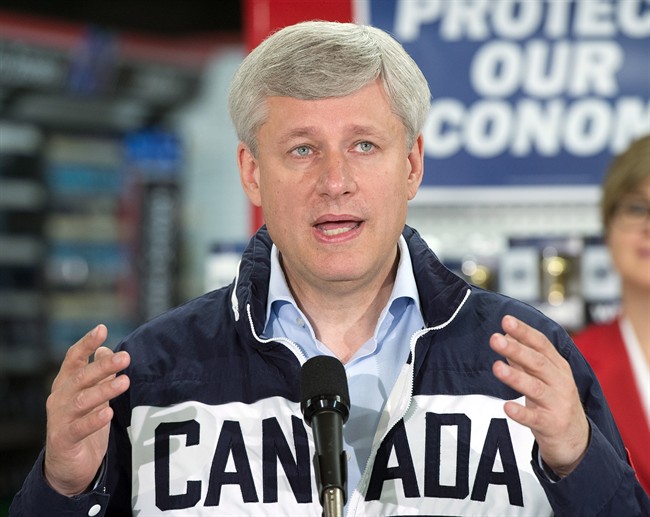


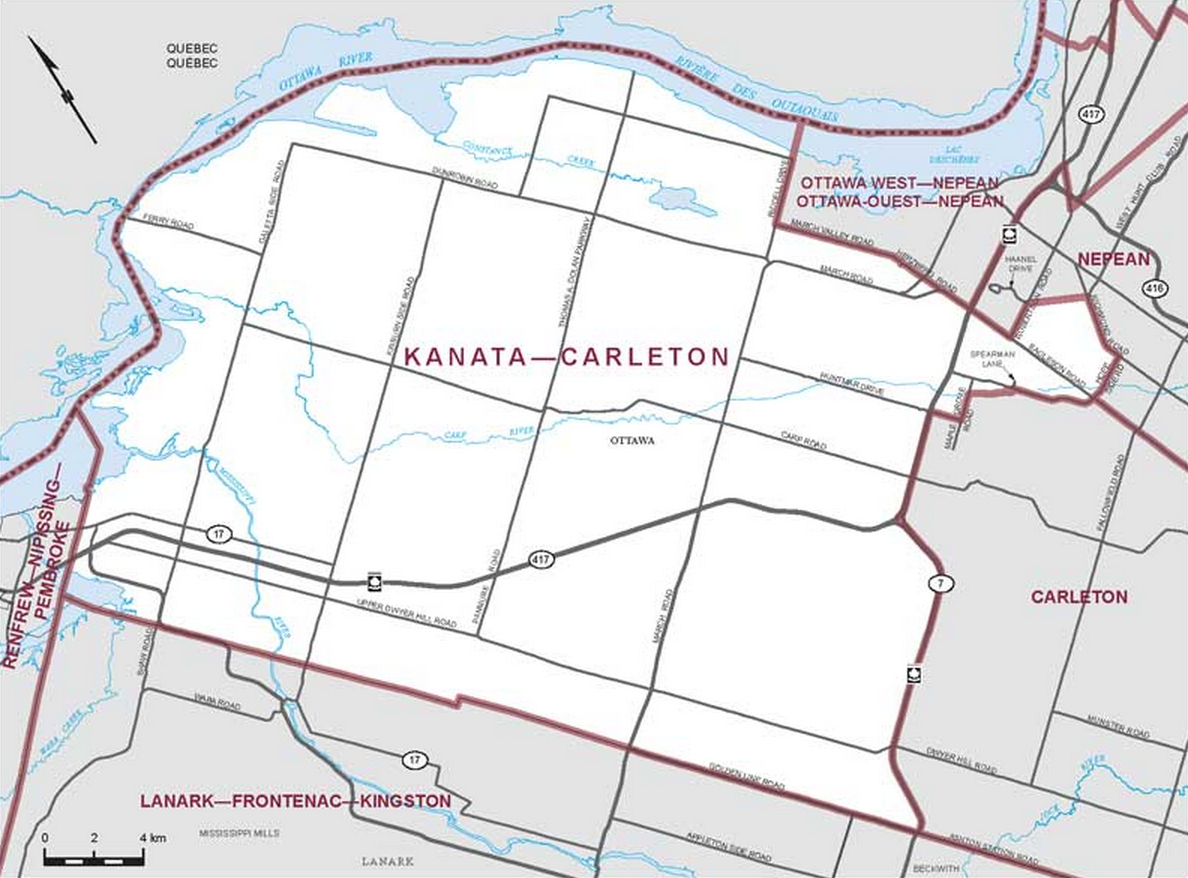

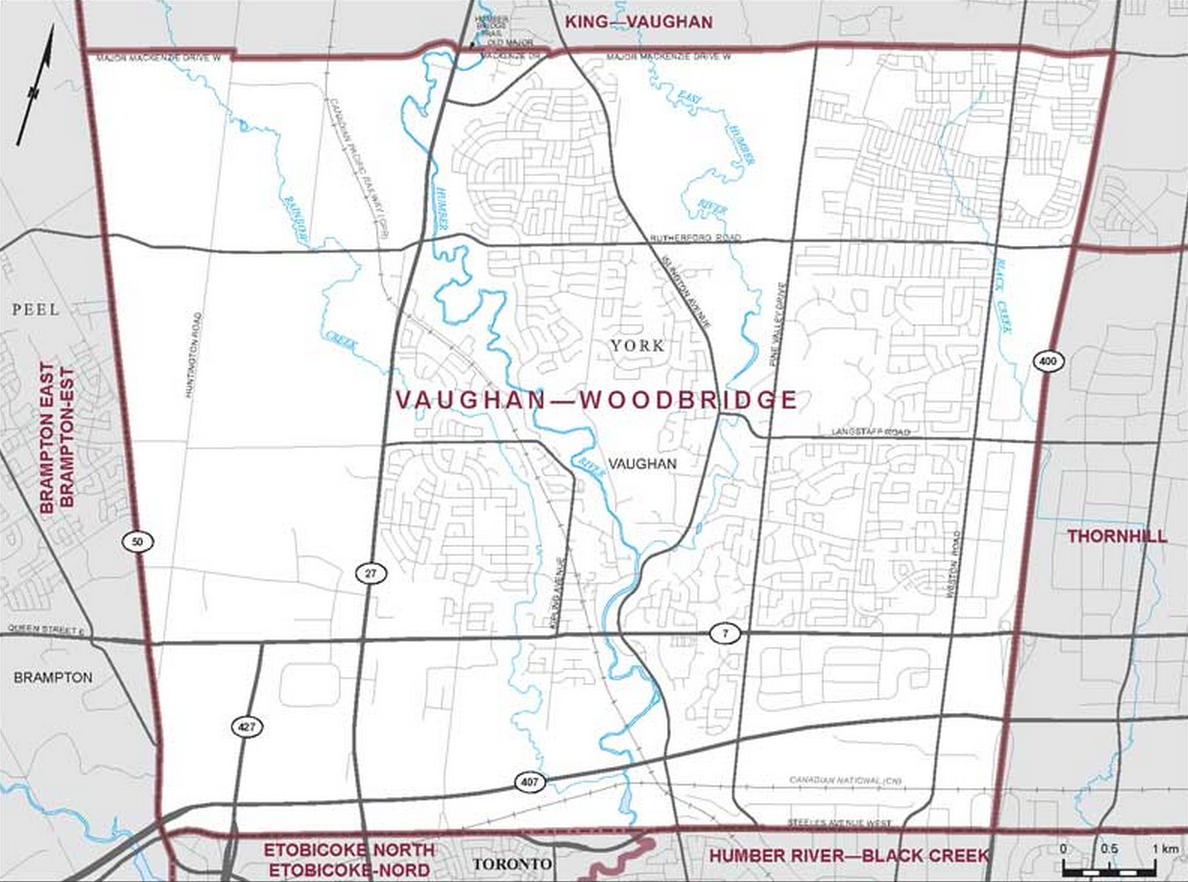




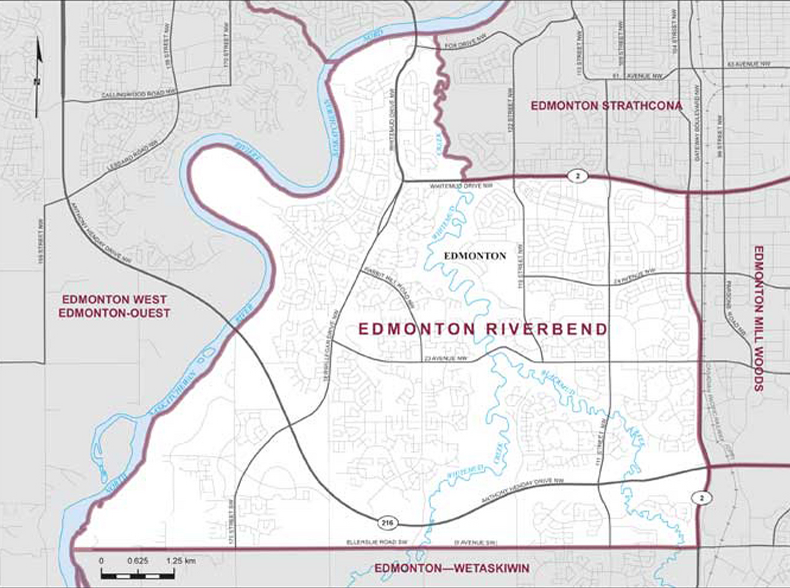

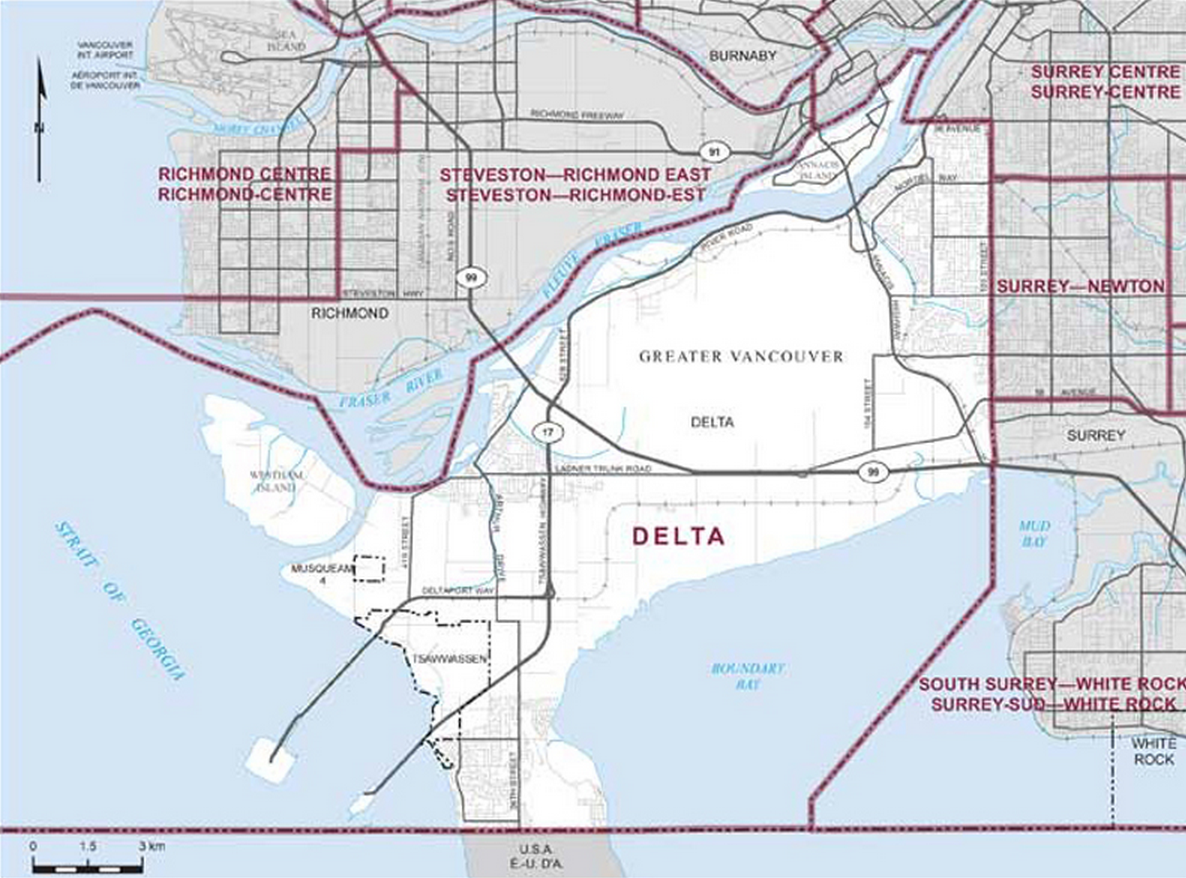




Comments